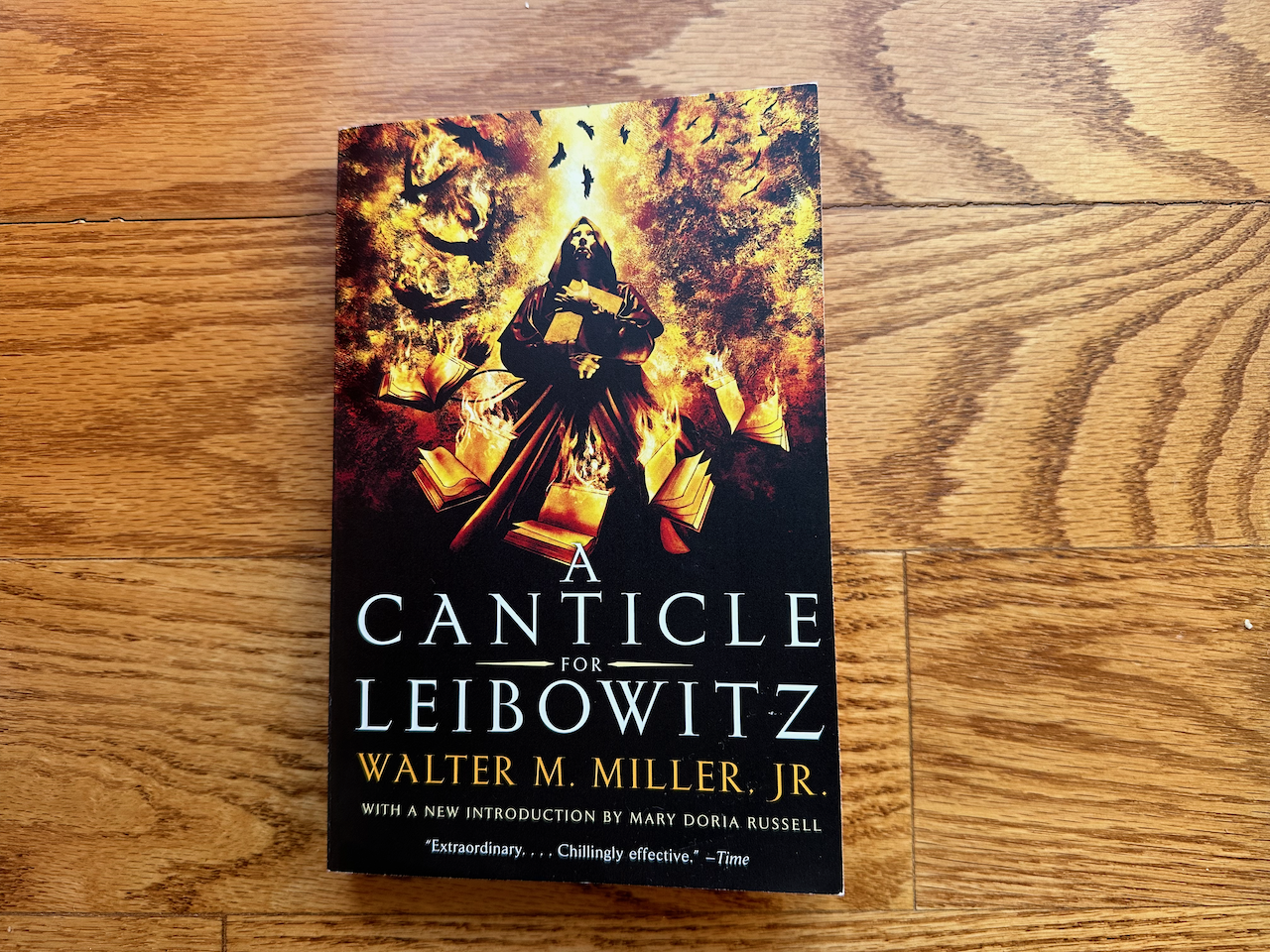Book Review
A Canticle for Leibowitz
I first heard about this book from my custom GPT, Reading Companion (a mentor for book discovery). Try it yourself and you might discover an amazing book!

A Canticle for Leibowitz was a Hugo Award winner in 1961. The book is set on post-apocalyptic earth. Over a series of centuries, the plot follows a series of monks whose use scribal practices to preserve the last known written remnants from the previous age. The book has an incredibly good combination of positive features — unique humor, characters that engender empathy, meditations on perennial wisdom topics, and geeky linguistic quirks to boot.
One character that I could feel for is a monk named Brother Francis. We are introduced to him as he is fasting in the desert as part of a process from being promoted from novice to take lifelong vows. It’s made clear that he feels suicide to be his only other viable option if he can’t make it into the order. He’s not a good fighter and doesn’t have the stomach to live out life in what seems like a very Mad Max type of situation. The life of a monk in the Albertian Order of Leibowitz can be austerely severe in its own ways though. A successful life is spent developing myopia as one copies often unintelligible texts by candlelight.
There are several scenes where the order of monks exhibit a combination of ignorance and reverence for the texts that I can only describe as charming. I won’t ruin all the fun, but imagine a dark age monk preserving circuit diagrams with no understanding of electricity and being so enamoured with the symmetry and intricacy of the design that he cannot help but illuminate his copy of the diagram with swords, crosses, flowers, and the like.
Perhaps the centerpiece of the book is when scientific inclination begins to return to humanity. There is now a leading scholar who is pushing to achieve the understanding and command of the world that was lost after the “deluge” (though his pride is doomed to merely rediscover what came before). This leading scholar makes a journey to the abbey where the monks preserve texts. With a skeptical eye akin to 19th century German Biblical Criticism, the scholar studies the faithfully preserved texts with plenty of theories about how their transmission could have gone wrong. Several conversations the monks have with the scholar give shape to a dynamic where I’ve felt tension myself. That is, on the hand, the religious inclination to preserve ancient knowledge (perhaps not fully understood) and on the other, the scientific proclivity for certainty that we see even today. The way that Miller uses the future setting to shed light on discussions like these that we have in our own time is even-handed, artful, and thought-provoking.
As time goes on, humanity gets ever closer to achieving the power and command they once had. This phase of the novel gives the author opportunities to explore theodicy in a way that feels honest and fresh to this reader. I could go on — there is a memorable visit with the Pope of New Rome that takes place, a prophetic Hebrew character that is interwoven in the plot and many more interesting and enjoyable moments. If you have any interest in Science Fiction, Christianity, scribal practices, linguistics, and the like, I think A Canticle for Leibowitz is likely to be worth your time.